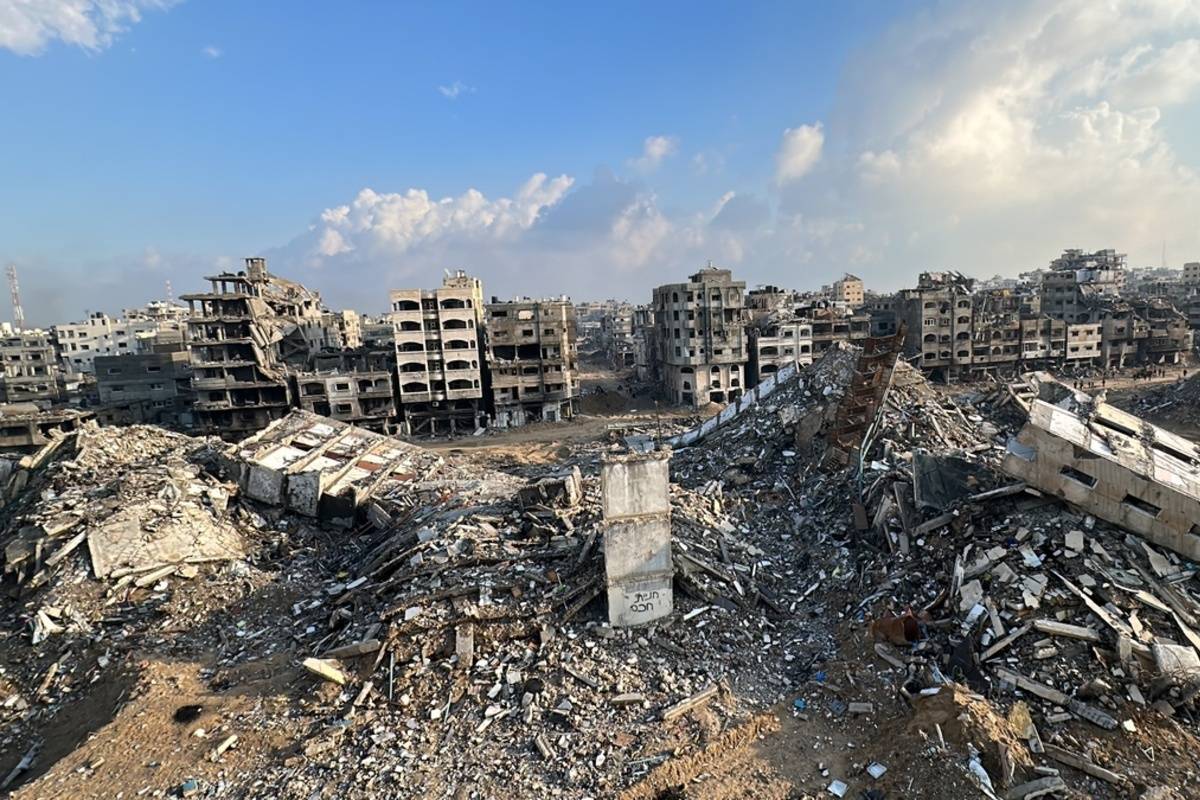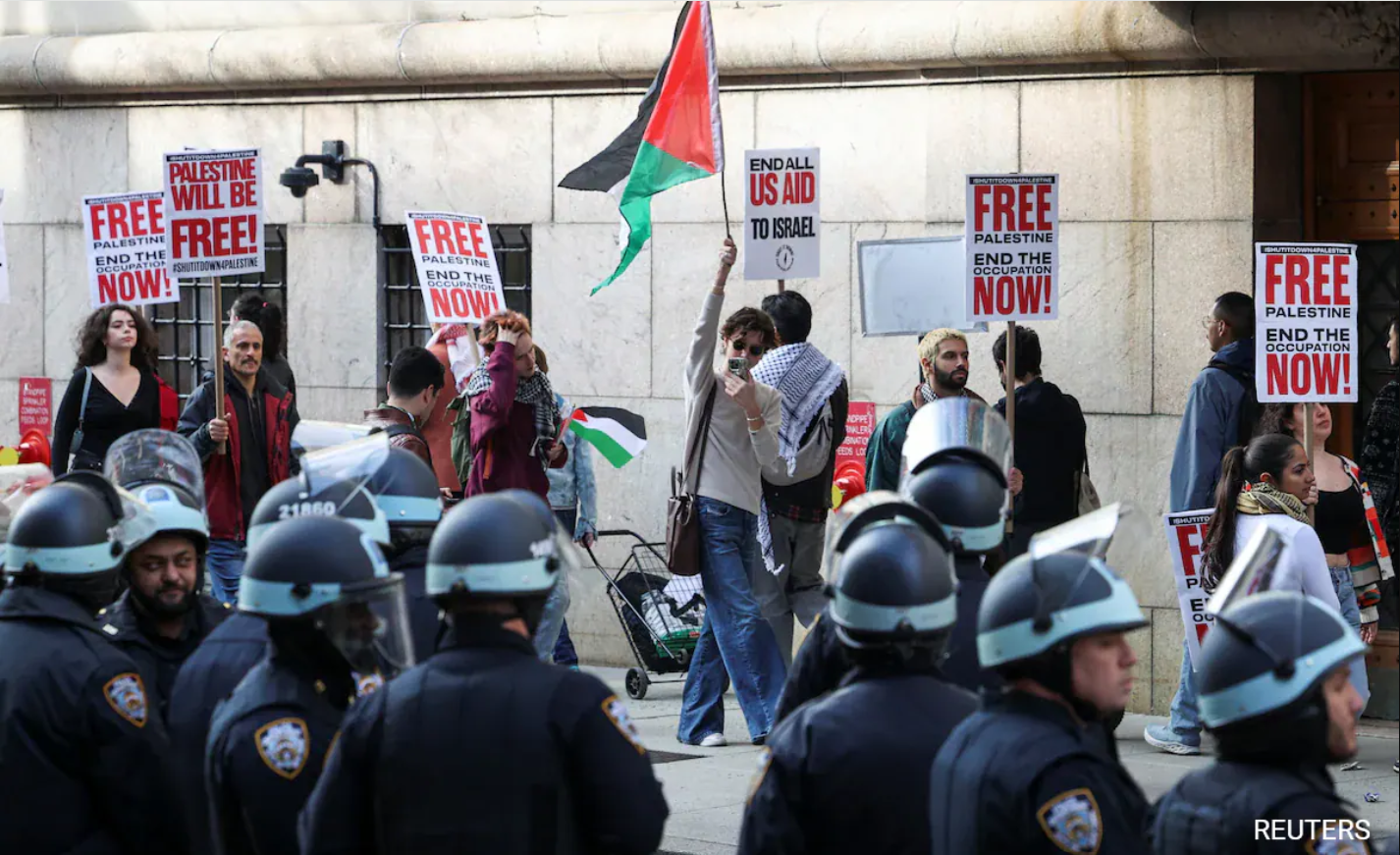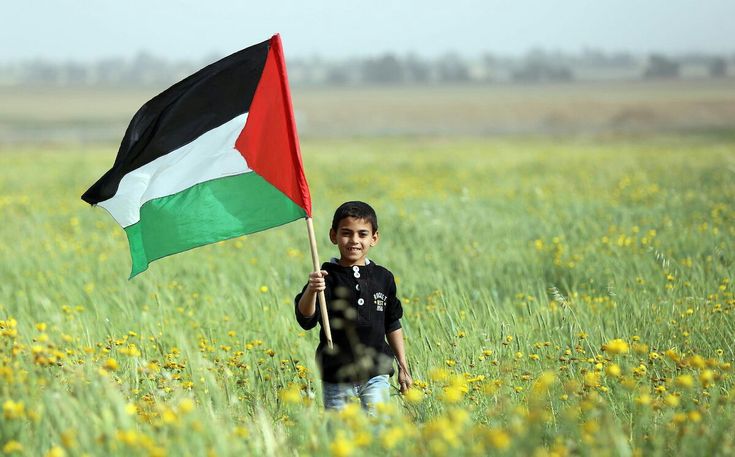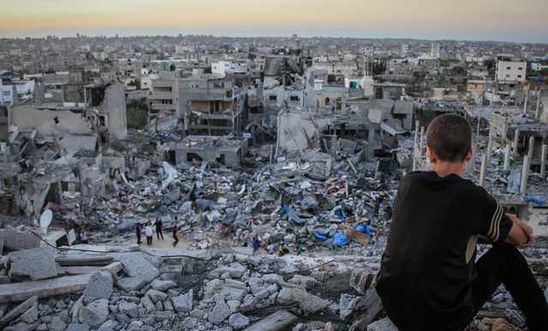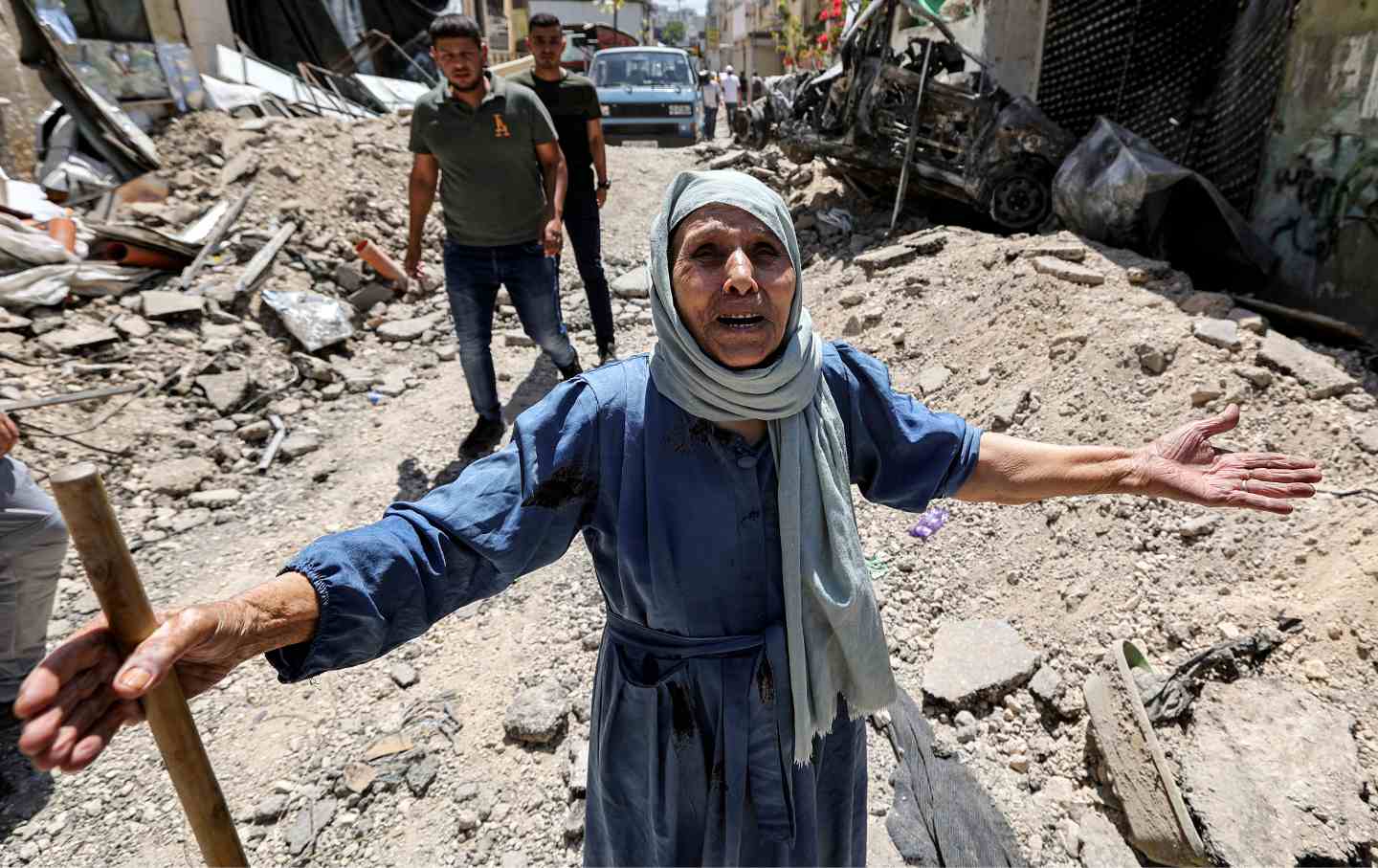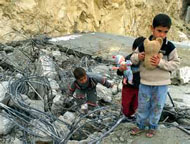
The other day, my two children – ages 13 and 10 – got caught at the Qalandiya checkpoint in a billowing cloud of teargas. I was not with them and my sister was to meet them on the other side [I will not go into the myriad of reasons why I cannot pick up my children from Jerusalem and drive them to Ramallah. That would take a whole other article]. Anyway, by the time I saw them, their eyes were puffy and red and my daughter was still visibly distressed. According to my son, she cried and screamed the whole time while he gave her clear instructions: close your eyes as much as possible and put your mouth and nose in your shirt collar. Wise directives, I might add. Once they were with their auntie, she provided them with water to cool their burning eyes and faces and to calm my hysterical daughter.
Two days later, we were back at Qalandiya, driving through this time with my husband behind the wheel. There were a few stone-throwing boys and an army of Israeli soldiers, fully armed and ready for combat. As we approached the checkpoint, teargas and what I assume were rubber-coated bullets began flying through the air. We could not go back at this point and our only option was to hope that no stray bullet, teargas canister or stone would come crashing through our closed windows. [We wanted to keep the teargas out this time]. My instinct was to tell the kids the only possible survival tactic I could think of: “Keep you heads down.”
Thankfully, we got passed unscathed. But I could not help thinking that this ’minor’ incident was an everyday occurrence for our children. In comparison to what other Palestinian children go through, it was really nothing.
Palestinian children watch as their homes are demolished and their parents made to stand by, helpless. They see their rooms, their belongings and their entire life go up in a plume of dust and debris, their sense of stability and safety shattered. They watch as their fathers and brothers are taken in the middle of the night by belligerent Israeli soldiers, beaten, handcuffed and blindfolded. They are injured and killed, arrested and harassed at checkpoints, expelled from their homes and denied education. Children as young as six have been handcuffed and arrested by Israeli forces, traumatized and terrified, perhaps for years to come.
I have always tried not to allow my children to grow up in an atmosphere of hate. This did not come from a place of ‘love they enemy” but rather because I wanted them to build healthy, positive characters. That is a difficult task in a place like this. My children have been lucky in terms of getting caught up in the violence of the Israeli occupation. Yes, their father and uncles have been arrested, they have inhaled teargas and heard the pop of live ammunition. They experience the harassment of checkpoints all the time and have seen the ugly cement wall that cuts through their country.
But so far, they have a family and a safe place they call home. What about so many Palestinian children who have lived under Israeli shelling or have had their homes razed to the ground? How is anyone going to tell them that hatred is not a healthy emotion? Can anyone blame them for hating?
I wonder if Israel realizes what kind of generation of young Palestinians they are helping to mold. What do they expect from a child whose father was killed in an Israeli prison under interrogation? During Arafat Jaradat’s funeral, four-year old Yara kept looking in the crowds, searching for her father’s face. Who knows what kind of emotional scars this child will have in her adulthood and what rage she may harbor.
My heart bleeds for Palestine’s children because they are the most innocent victims and they will pay the highest cost of Israel’s occupation. Israel should think twice next time it arrests a child or throws teargas in their path. Every action has a reaction and the Palestinians have never been ones to sit back in a corner in submission.
Joharah Baker is a Writer for the Media and Information Department at the Palestinian Initiative for the Promotion of Global Dialogue and Democracy (MIFTAH). She can be contacted at mid@miftah.org.




